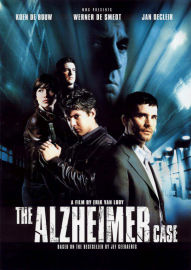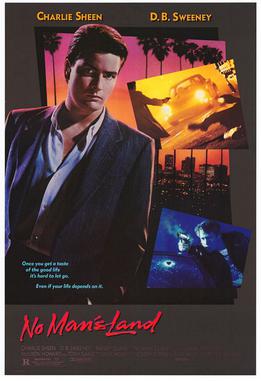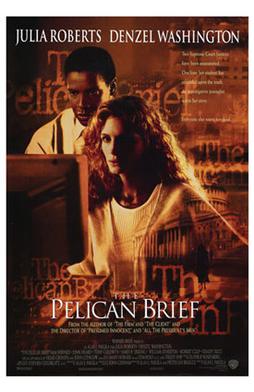In jurisprudence, prosecutorial misconduct or prosecutorial overreach is "an illegal act or failing to act, on the part of a prosecutor, especially an attempt to sway the jury to wrongly convict a defendant or to impose a harsher than appropriate punishment." It is similar to selective prosecution. Prosecutors are bound by a sets of rules which outline fair and dispassionate conduct.

Silkwood is a 1983 American biographical drama film directed by Mike Nichols, and starring Meryl Streep, Kurt Russell, and Cher. The screenplay by Nora Ephron and Alice Arlen was adapted from the book Who Killed Karen Silkwood? by Rolling Stone writer and activist Howard Kohn, which detailed the life of Karen Silkwood, a nuclear whistle-blower and a labor union activist who investigated alleged wrongdoing at the Kerr-McGee plutonium plant where she worked. In real life, her inconclusive death in a car crash gave rise to a 1979 lawsuit, Silkwood v. Kerr-McGee, led by attorney Gerry Spence. The jury rendered its verdict of $10 million in damages to be paid to the Silkwood estate, the largest amount in damages ever awarded for that kind of case at the time. The Silkwood estate eventually settled for $1.3 million.

My Cousin Vinny is a 1992 American comedy film directed by Jonathan Lynn, written by Dale Launer, and produced by Launer and Paul Schiff. It stars Joe Pesci, Ralph Macchio, Marisa Tomei, Mitchell Whitfield, Lane Smith, Bruce McGill, and the final film appearance of Fred Gwynne. The film was distributed by 20th Century Fox and released on March 13, 1992.

Primal Fear is a 1996 American legal mystery crime thriller film directed by Gregory Hoblit, based on the 1993 novel of the same name by William Diehl, and written by Steve Shagan and Ann Biderman. It stars Richard Gere, Laura Linney, John Mahoney, Alfre Woodard, Frances McDormand and Edward Norton in his film debut. The film follows a Chicago defense attorney who believes that his altar boy client is not guilty of murdering a Catholic archbishop.

The Alzheimer Case is a 2003 Belgian action thriller film directed by Erik Van Looy, based on the novel De zaak Alzheimer by Jef Geeraerts. It follows an assassin with Alzheimer's disease, who plans to retire but ends up becoming a target himself after he refuses to kill a young girl.

No Man's Land is a 1987 American crime film written by Dick Wolf directed by Peter Werner, and stars Charlie Sheen, D. B. Sweeney, and Randy Quaid. The plot follows a rookie cop who goes undercover and infiltrates a car theft ring. The film was released on October 23, 1987 and received mixed reviews from critics.

The Pelican Brief is a 1993 American legal thriller film based on the 1992 novel by John Grisham. Directed by Alan J. Pakula, the film stars Julia Roberts in the role of young law student Darby Shaw and Denzel Washington as Washington Herald reporter Gray Grantham. The film, which features music composed by James Horner, was the last film that featured Pakula as both writer and director before his death.

Amanda Marie Knox is an American author, activist, and journalist. She spent almost four years incarcerated in Italy following her wrongful conviction for the 2007 murder of Meredith Kercher, a fellow exchange student with whom she shared an apartment in Perugia. In 2015, Knox was definitively acquitted by the Italian Supreme Court of Cassation.
Ekaterina Trendafilova is a Bulgarian lawyer and judge with international and domestic experience. She is currently serving as the first President of the Kosovo Specialist Chambers – a position to which she was appointed in December 2016 for a four-year term and took her office on 12 January 2017.

West of Memphis is a 2012 New Zealand-American documentary film about the West Memphis Three that was directed and co-written by Amy Berg, and produced by Berg, Fran Walsh and Peter Jackson, and Damien Echols and his wife, Lorri Davis. It was released in the US by Sony Pictures Classics to critical acclaim, and received a nomination for Best Documentary Screenplay from the Writers Guild of America.
Doreen Quinn Giuliano is the mother of John Giuca, who in 2003 was convicted of the murder of Mark Fisher. Giuliano went undercover to investigate possible juror misconduct in the trial. Because of her activities, Giuliano has been called "Mother Justice."
Corryn Veronica Ann Rayney, née Da Silva, migrated to Australia with her Indian family in 1973 as refugees from Idi Amin's Uganda. Her death occurred on or about 7 August 2007, her body being discovered a week later in a clandestine grave in Kings Park, Perth, with no clearly established cause of death. Her husband Lloyd Rayney, a prominent barrister specialising in criminal prosecution, was charged with her murder, but found not guilty after a trial before a judge only. The acquittal was unanimously upheld by a court of appeal in August 2013. The state's police commissioner and attorney general declined to acknowledge documented procedural mistakes, and refused to instigate a fresh search for the killers, leading to calls for a federal investigation into the matter.

Hae Min Lee was a Korean-American high school student who went missing on January 13, 1999, in Baltimore County, Maryland, before turning up dead on February 9, 1999, when her corpse was discovered in Leakin Park, Baltimore. Her autopsy revealed that she had been killed by way of manual strangulation.

Marilyn Mosby is an American politician and lawyer who served as the State's Attorney for Baltimore from 2015 to 2023. Mosby gained national attention following the killing of Freddie Gray in 2015, after which she led a highly publicized investigation and unsuccessful murder prosecution of the police officers who arrested and transported Gray.
The murder of Tair Rada, a 13-year-old Israeli schoolgirl, was committed in 2006, in the girls' bathroom of her school in Katzrin. Roman Zdorov, a Ukrainian national residing in Israel and working at the school as a floorer, was convicted of the murder and was sentenced to life imprisonment on September 14, 2010. His prosecution and conviction have been a source of controversy, receiving much media coverage, as well as being the focus of an Israeli documentary TV series called Shadow of Truth that has gained worldwide attention on Netflix. On August 26, 2021, Zdorov was released from prison to house arrest after many appeals.
The Ford Heights Four were formerly imprisoned convicts, who were falsely accused and convicted of the double murder of Lawrence Lionberg and Carol Schmal in Ford Heights, Illinois, and later exonerated. Jimerson and Williams were sentenced to death, Adams to 75 years in prison and Rainge to life. Following the murder in 1978, the four spent almost two decades in prison before being released in 1996. This miscarriage of justice was due to false forensic testimony, coercion of a prosecution witness, perjury by another witness who had an incentive to lie, and prosecution and police misconduct. The DNA evidence uncovered in the investigation to clear their names eventually led to the arrest and conviction of the real killers.

Lawless Lawyer is a 2018 South Korean television series ran starring Lee Joon-gi, Seo Yea-ji, Lee Hye-young, and Choi Min-soo. The series was written by Yoon Hyun-ho and directed by Kim Jin-min. The series is set in the fictional city of Kisung which is described as lawless and corrupt.

Peppermint is a 2018 American vigilante action thriller film directed by Pierre Morel and starring Jennifer Garner. Also featuring John Ortiz, John Gallagher Jr., Juan Pablo Raba, and Tyson Ritter, the plot follows a woman who transforms herself into a vigilante in a quest for revenge against the drug cartel that killed her daughter and husband.

Ali Mahmood Awad Irsan is a Jordanian-American convicted murderer held on Texas death row. He was sentenced for the murders of Iranian-American activist Gelareh Bagherzadeh, a friend of one of his daughters; and his son-in-law, Coty Beavers, in Greater Houston.

On 19 July 2018, a 56-year-old woman named Low Hwee Geok, also known as Michelle Low, was attacked and stabbed at the carpark area of ITE College Central. The attacker, who was Low's ex-husband Seet Cher Hng, had attempted suicide after stabbing his ex-wife eight times, but he was taken to hospital by the police and he survived his wounds. Low, on the other hand, died from the cold-blooded attack, resulting in Seet being arrested and charged with murder. Seet, who had a gambling habit, had been harassing his wife for several years after their divorce for more money due to his allegations that his share of their condominium's sale proceeds was not fairly distributed. Three years later, Seet, then 69 years old, was found guilty of murdering Low by the High Court on 14 September 2021. Eight days later, Seet was sentenced to life imprisonment on 22 September 2021.














